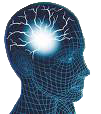The following article appeared in Medscape & was written by Megan Brookes. The original study was funded by the Netherlands Organization for Scientific Research and the European Community.
Alcohol, especially red wine, is perceived as a common migraine trigger, new research suggests.
In a cross-sectional survey of more than 2000 patients with migraine, alcoholic beverages were blamed for triggering migraine attacks by more than one third (35.6%) of the respondents.
Among the various alcoholic drinks, wine — especially red wine — was identified as the most likely to provoke a migraine (77.8%), while vodka was the least likely (8.5%). However, only 8.8% of the participants reported that red wine consistently led to an attack.
“Migraine patients should be careful drinking red wine during the happy holidays in order to stay happy instead of suffering from migraine after dinner,” Gisela Terwindt, MD, neurologist at the Leiden University Medical Center, the Netherlands, and one of the study authors, told Medscape Medical News.
The findings were published online December 18 in the European Journal of Neurology.
“Different From a Hangover”
In the survey, one third of the 2197 total participants said migraine typically hit within 3 hours of drinking alcohol and almost 90% said migraine onset was within 10 hours, regardless of type of alcohol consumed.
“Because of the rapid onset of the attacks after the intake, it is not a hangover headache and thus the underlying mechanism is different from a hangover,” Terwindt noted.
“It is likely that it is a combination of triggers, eg, including additional factors as sleep deprivation and the menstruation period, that provoke migraine attacks,” she added.
Terwindt said it’s also important to note that drinking alcohol will not provoke an attack each time. Still, one quarter of patients said they stopped drinking alcohol or never started because of presumed trigger effects.
Asked to comment on the study by Medscape Medical News, Noah Rosen, MD, director of Northwell Health’s Headache Center in Great Neck, New York, said, “It’s interesting that most people do not find alcohol to be a trigger and even fewer find it a regular event, but a significant minority still does.
“More people avoid it due to fear of a trigger rather than the actual risk, probably because a migraine is a strong negative reinforcer,” said Rosen, who was not involved with the study.
The study suggests “that migraineurs should be aware of each drink they have and the fact [that] it may be another risk, particularly if in association with other common triggers such as stress, dehydration, poor sleep and skipping meals,” he added.
“If you do choose to drink, it should be in moderation, interspersed with nonalcoholic beverages and spread over longer periods of time,” Rosen said.
Richard Katesmark comments ; “I have found at the Epsom & Ewell headpain clinic that whilst alcohol is frequently blamed for triggering headaches, people often forget the number of times they have consumed alcohol and NOT ended up with a migraine. However there is no doubt that in many patients it is a contributing factor, so for instance if drinking alcohol is combined with a late night & possibly dehydration, a headache will inevitably follow. Interestingly many patients find that if other factors contributing to their headaches are dealt with (such as diet or neck issues) then they can often go back to drinking alcohol in moderation without a problem.”

